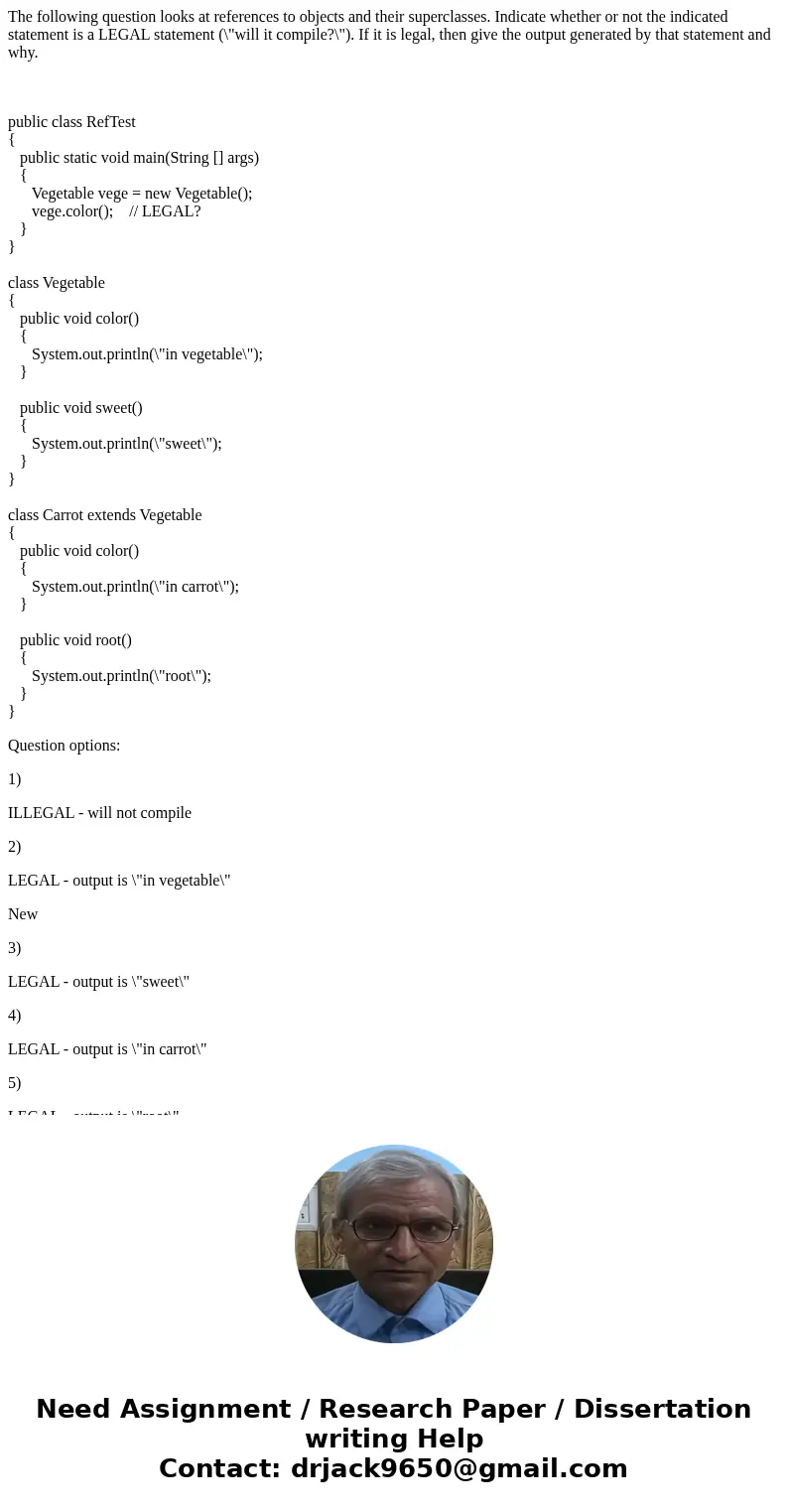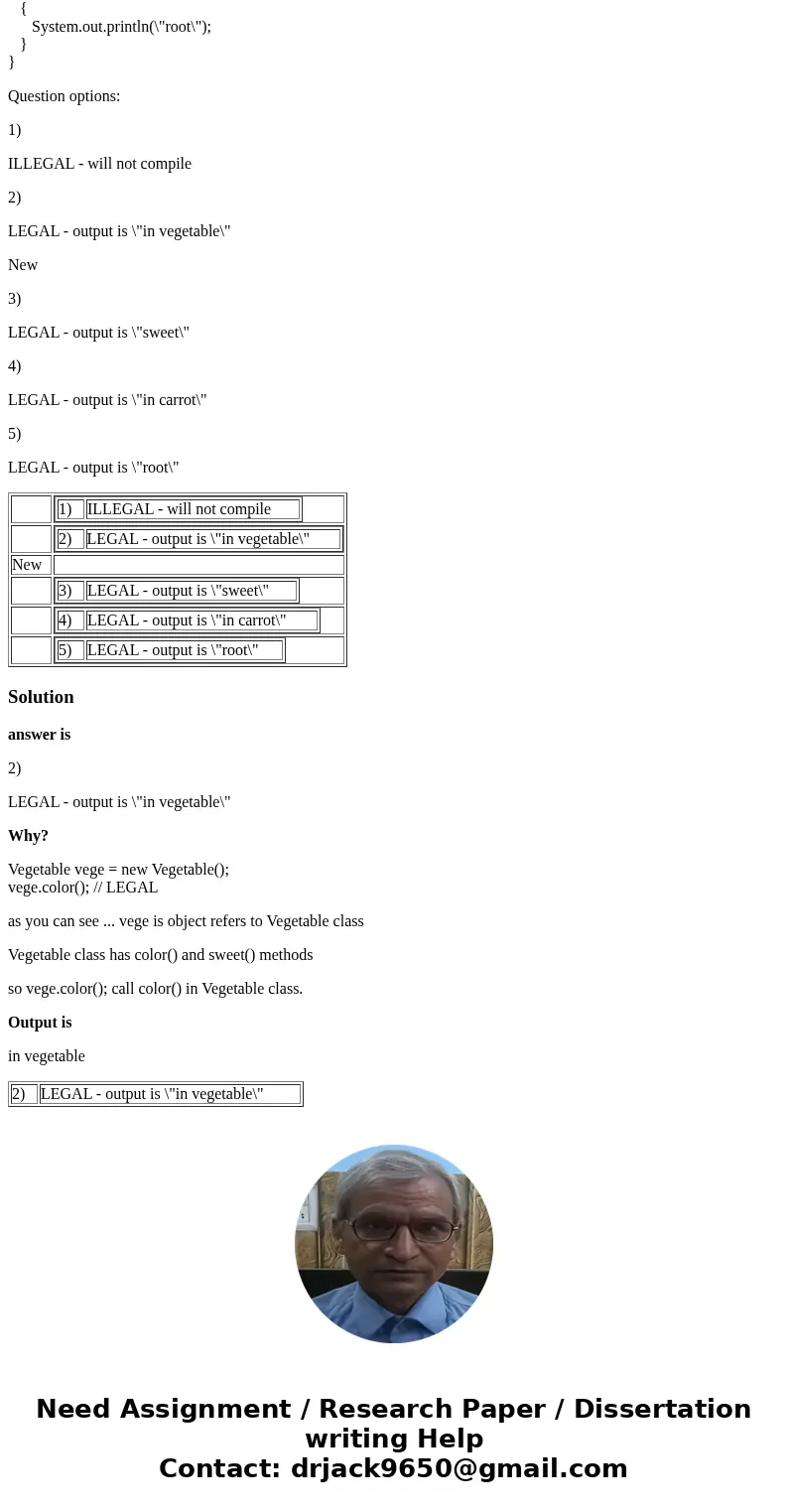The following question looks at references to objects and th
The following question looks at references to objects and their superclasses. Indicate whether or not the indicated statement is a LEGAL statement (\"will it compile?\"). If it is legal, then give the output generated by that statement and why.
public class RefTest
{
public static void main(String [] args)
{
Vegetable vege = new Vegetable();
vege.color(); // LEGAL?
}
}
class Vegetable
{
public void color()
{
System.out.println(\"in vegetable\");
}
public void sweet()
{
System.out.println(\"sweet\");
}
}
class Carrot extends Vegetable
{
public void color()
{
System.out.println(\"in carrot\");
}
public void root()
{
System.out.println(\"root\");
}
}
Question options:
1)
ILLEGAL - will not compile
2)
LEGAL - output is \"in vegetable\"
New
3)
LEGAL - output is \"sweet\"
4)
LEGAL - output is \"in carrot\"
5)
LEGAL - output is \"root\"
| |||
| |||
| New | |||
| |||
| |||
|
Solution
answer is
2)
LEGAL - output is \"in vegetable\"
Why?
Vegetable vege = new Vegetable();
vege.color(); // LEGAL
as you can see ... vege is object refers to Vegetable class
Vegetable class has color() and sweet() methods
so vege.color(); call color() in Vegetable class.
Output is
in vegetable
| 2) | LEGAL - output is \"in vegetable\" |


 Homework Sourse
Homework Sourse